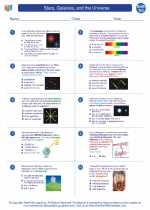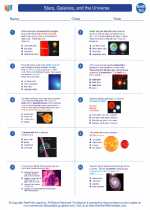Chromosomes
Chromosomes are thread-like structures located in the nucleus of animal and plant cells. They are made up of DNA and proteins, and are the carriers of genetic information. Chromosomes are essential for the process of cell division, as they ensure that each new cell receives the correct amount of DNA.
Structure of Chromosomes
Chromosomes consist of two chromatids, which are exact replicas of each other, joined together at a point called the centromere. Each chromatid contains a single molecule of DNA, which is tightly coiled and packed with proteins called histones. This coiling allows the DNA to fit into the nucleus of the cell.
Functions of Chromosomes
- Genetic Information: Chromosomes carry the genetic information that determines an organism's traits and characteristics.
- Cell Division: During cell division, chromosomes ensure that each new cell receives the correct amount of DNA. This is crucial for the growth, development, and reproduction of organisms.
Types of Chromosomes
There are two main types of chromosomes:
- Autosomes: These are the chromosomes that contain genes for general body characteristics and traits, excluding those related to sex determination.
- Sex Chromosomes: These chromosomes determine an individual's sex. In humans, females have two X chromosomes (XX), while males have one X and one Y chromosome (XY).
Chromosomal Abnormalities
Abnormalities in the number or structure of chromosomes can lead to genetic disorders. Some common chromosomal abnormalities include Down syndrome (trisomy 21), Turner syndrome (monosomy X), and Klinefelter syndrome (XXY).
Study Guide
Here are some key points to remember about chromosomes:
- Chromosomes are thread-like structures containing DNA and proteins.
- They are essential for genetic information and cell division.
- Chromosomes consist of two chromatids joined at the centromere.
- There are two main types of chromosomes: autosomes and sex chromosomes.
- Abnormalities in chromosomes can lead to genetic disorders.
Understanding the structure and function of chromosomes is essential for grasping concepts related to genetics, inheritance, and cell biology.
.◂Earth Science Worksheets and Study Guides High School. Stars, Galaxies, and the Universe

 Worksheet/Answer key
Worksheet/Answer key
 Worksheet/Answer key
Worksheet/Answer key
 Worksheet/Answer key
Worksheet/Answer key
